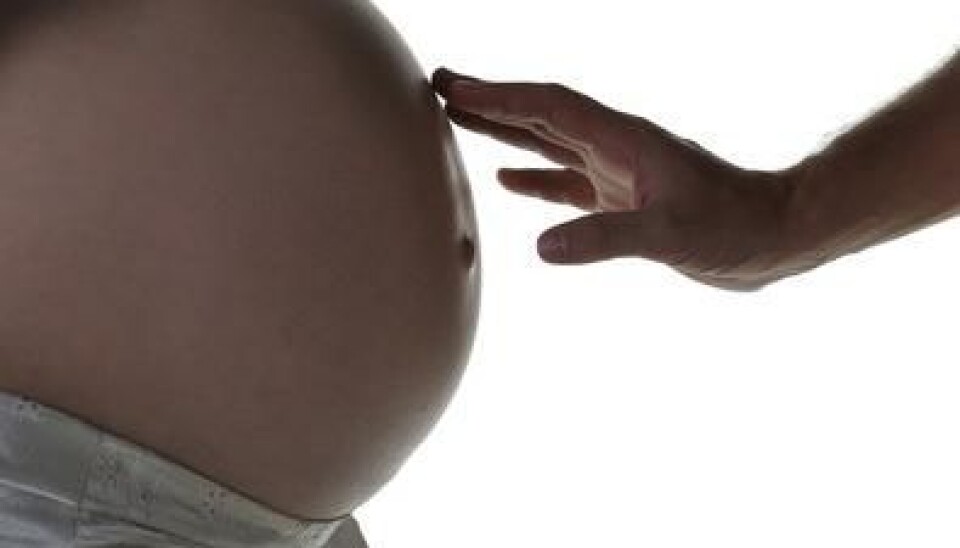This article was produced and financed by University of Bergen

Mental health of fathers can affect foetus
A three-year old child is at increased risk of emotional problems if its father had mental health issues during the pregnancy.
Denne artikkelen er over ti år gammel og kan inneholde utdatert informasjon.
The study finds a small, but consistent connection between the mental health of fathers during a pregnancy and a child’s social-emotional and behavioural development.
"Mental health issues among fathers is associated with an increased risk of emotional problems in children at the age of three," says Anne Lise Kvalevaag, lead author of the study.
Kvalevaag is a doctoral student at the University of Bergen and also works at the health service provider Helse Fonna HF.
Three percent of the fathers surveyed showed particularly high levels of psychological distress. It turned out that the children of these fathers also had high levels of emotional problems. This father-child connection reinforced the findings in the study.
A new discovery
31,663 children and their parents participated in the study. The data were obtained from the Norwegian Mother and Child Cohort Study (MoBa) at the Institute of Public Health. The fathers reported in weeks 17 and 18 of the pregnancy, and their answers formed the basis of the study.
The researchers also looked at the mother’s mental health during pregnancy and the child’s social-emotional and behavioural development at age three, as reported by the mother.
"We observed little or no change in the father-child connection when we used control factors that could affect the relationship we had established, such as the father’s age, education, marital status, general health, smoking, alcohol, physical activity, and the mother’s mental health in pregnancy. Nor did the child’s gender affect this connection," says Kvalevaag.
A connection between father’s mental health after the baby is born and social and behavioural problems in children has already been established in previous research. The connection between the mother’s mental health – both during and after pregnancy – has also been shown to represent a risk to a child’s development.
"What’s new is that the father’s mental health during pregnancy clearly influences the child’s development at the age of three," she says.
A number of causes
In the article the research team points to possible mechanisms at work that may explain the link between a father’s psychological problems in pregnancy and a child’s future development.
The team point out that the father’s mental health issues during pregnancy, unlike his problems in the child’s first year of life, may point to a genetically transmitted risk.
Part of the explanation may be that the father’s issues are transferred to the pregnant mother affecting her stress levels and mental health, which in turn affect the foetus.
They also point out that the father can transfer his mental issues into the care of the child after birth.
"The mechanisms underlying the connection we found between fathers’ and children’s mental health needs further studies to be fully understood. We do however believe that the findings may be of interest to both clinicians and health care planners when considering what services to offer parents during pregnancy and the child’s first year of life," says Kvalevaag.
"As well as asking about the mother’s health, this serves as a reminder to ask about the father’s health as well".
Translated by: Sverre Ole Drønen
































